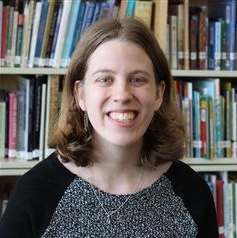2012
“I remember sitting on the rug in Stephanie Rotsky’s second grade classroom and learning about tzedakah heroes. As a seven-year-old, the idea that ordinary people could become heroes through acts of social justice was awe-inspiring. ‘One day, that will be me,’ I thought.
[Aviva was one of Rashi’s original Mitzvah Makers, a group of second graders who created the program – which is still going strong more than fifteen years later – that brings Rashi students to visit with senior residents of Hebrew SeniorLife facilities on a monthly basis throughout the school year.]
In college [at the University of Chicago], I began learning about what seems to me one of the most significant manifestations of brokenness in our country: educational inequity, or the gaping disparity between the educational outcomes of rich and poor students in our country. In Chicago, where I live right now, less than 6% of students will graduate from a 4-year college. I see my future as working with communities to improve students’ futures throughout Chicago.
I am fortunate to have the chance to work at a truly transformational school, Golder College Prep. Our students come from all over Chicago and our mission is to send 100% to college. I teach freshman literature, Algebra, and a math intervention class for 7 special education students. I begin and end each day with my homeroom, a group of 23 sophomore girls that I had last year as freshmen. Together we do community service, visit colleges, discuss grades and behavior and have girl talk. My plan is to see them graduate high school and enroll in college.
One particularly inspiring experience was taking my girls to a nursing home near our school. It reminded me of when I was in middle school at Rashi, around the same age as my students, trying to figure out how to talk with and relate to older people. Most of the residents of the nursing home spoke Spanish. My students who spoke Spanish at home enjoyed conversing in their native tongue with the residents and helping out their friends. Several of my girls, though, have parents who have never spoken Spanish to them and they felt regret losing this part of their culture. For these girls, our trips were especially meaningful—they loved having their friends act as translators and learning from the residents about their heritage.


